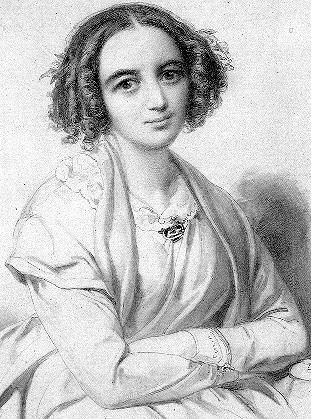Your Custom Text Here
Fanny Cäcilia Mendelssohn was born in Hamburg in 1805, the eldest of four children. The family moved to Berlin in 1811. Here, Fanny and her brother Felix embarked on an intense music education which included composition lessons with Carl Friedrich Zelter and piano lessons with Ludwig Berger. Fanny showed a precocious talent, for example, memorising all the preludes from Book I of Bach’s The Well-Tempered Clavier at the age of thirteen as a present for her father Abraham. In 1820 she joined the Sing-Akademie zu Berlin (a famous mixed-voice choir) as an alto. The following year she met her future husband, the artist Wilhelm Hensel. It appears to have been love at first sight, but Fanny’s parents were opposed to the match. Wilhelm went on a five-year study trip to Italy, during which the young couple were forbidden contact with each other. Upon Wilhelm’s return to Berlin in 1828, however, the Mendelssohns because convinced of his honourable intentions and the couple married in 1829. In the intervening years, Fanny herself had travelled in Europe, including to Weimar, where she met the poet Johann Wolfgang von Goethe. She had also had six songs published under her brother’s name. Her composing output in the 1820s were considerable, encompassing solo Lieder, part-songs, piano music, two concert arias, a piano quartet and an Adagio for violin and piano.
The Hensels’ marriage was a happy one. The only son Sebastian was born in 1830. The early 1830s were a time in which Hensel expanded her oeuvre large-scale works, including cantatas and a string quartet. She also took over running the Sunday musicales for which the Mendelssohn residence had become famous. These blossomed under her direction. Many famous artists and even full orchestras performed at these fortnightly concerts.
In 1838, Hensel gave her only recorded ‘public’ performance, playing her brother Felix’s G minor piano concerto. Two years later, the Hensels made a year-long trip to Italy, where Fanny’s musical gifts were widely fêted. This validation of her creativity appears to have given her the confidence to take control of even more of her own music-making, particularly in the area of publishing. A few of her Lieder had appeared in varying publications over the past years, but it was not until 1846 that Hensel took the decision to publish a larger number of her works. Unfortunately, her enjoyment of this was to be short-lived. While rehearsing her Szene aus Faust on 14 May 1847, she suffered a stroke and died that afternoon. Her family published more of her Lieder and piano pieces, including the D minor trio. A line from her last song “Bergeslust”, the manuscript of which was on her piano on the day of her death, adorns her headstone: “Gedanken gehen und Lieder, fort bis ins Himmelsreich” (Thoughts and songs go forth into the kingdom of heaven).
